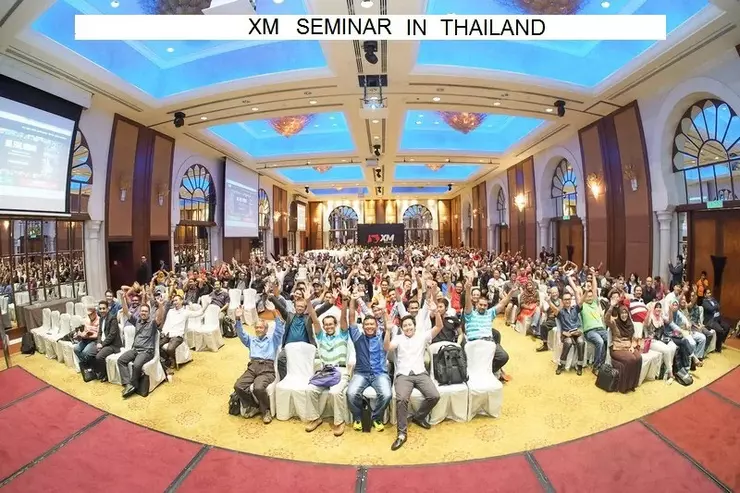Continuation CFDs Setup Patterns
When these continuation cfd chart patterns are formed they confirm that the current cfd trend is going to continue moving in same direction.
These patterns are used by traders to identify half way points of the trend, this is because they form at halfway point of a trend.
There are four types:
- Ascending triangle
- Descending triangle
- Bull flag/pennant
- Bear flag/pennant
Ascending Triangle
The ascending triangle is formed in an up cfd trend and it shows that upward direction of the market is going to continue.
It shows that there is a resistance level that the buyers keep pushing each time moving it higher, & once it breaks cfds price will continue heading upwards.
Overhead resistance temporarily stops the market from advancing higher, while the rising cfd trend-line beneath the setup signals that buyers are still present. An upside penetration of the upper line is a technical buy cfd signal for a market breaking out from an ascending triangle.
Found within a CFD Trading upwards trend, the ascending triangle forms as a consolidation period within the up cfd trend and shows upside continuation will follow.
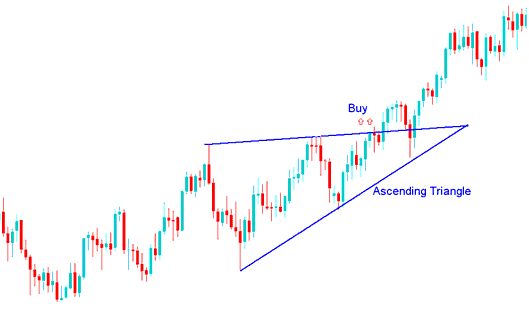
The market formed an ascending triangle during its up cfd trend which led to upside continuation. Buy point is when price clears the upper sloping line & the cfd market continues moving upwards.
Descending Triangle
The descending triangle is formed in a down cfd trend & it shows that downward direction of price movement is going to continue.
It shows that there is a support level that the sellers keep pushing each time moving it lower, & once it breaks cfds price will continue moving downwards.
The support temporarily stops the cfd market from declining, while the descending sloping line above the setup signals that the sellers are still present. A down-side penetration of the lower line is a technical sell cfd signal for a market breaking down from a descending triangle, and this shows selling will follow.
Found within a CFD Trading downwards trend, the descending triangle forms as a consolidation period within the down cfd trend and shows downside continuation will follow.
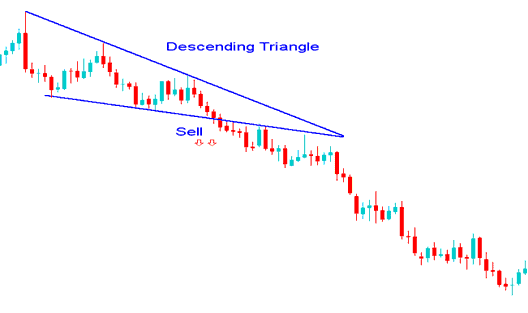
Market formed a descending triangle during its down cfd trend which led to further selling and continuation of the downward cfds trend. The technical sell cfd signal is when price breaks-out the lower horizontal sloping line as selling resumes to push the cfd market lower.
Bull Flag/Pennant
This pattern forms what looks like a rectangle. The rectangle is formed by two parallel lines that act as support & resistance for price until the price breaks out. In general, the flag won't be formed perfectly flat but this pattern setup will be formed sloping.
The bull flag is found within a CFD Trading upwards cfds trend. In this continuation pattern where the cfd market retraces slightly, it is therefore a slight retracement with narrow cfds price action that has a slight downward tilt. The technical buy point is when price penetrates the upper line of the flag. The flag portion has highs and lows which can be connected by small lines which are parallel, & it looks like a small channel.
The pennant occurs at halfway point of a bullish upwards trend and after a breakout a similar move equivalent to the height of the flagpole is expected.
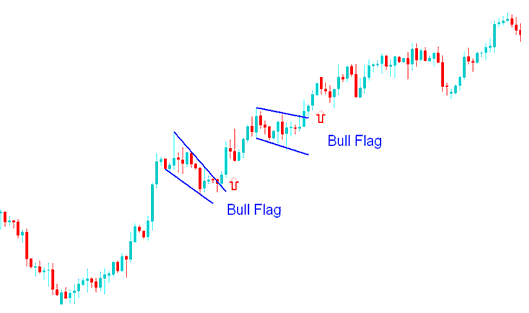
The bull pennant above was just a resting period as the cfd market gathered strength to break-out and move higher. The continuation trading signal was confirmed as a upper line was broken to the upside.
Bear Flag/Pennant
This flag is found in a CFD Trading downwards cfds trend. The bear flag is a continuation pattern where the price retraces slightly with a narrow cfds price action that has a slight upward tilt. The technical sell point is when price penetrates the lower line of the inverted flag. The pennant portion has highs and lows which can be connected by small lines which are parallel, & it looks like a small channel.
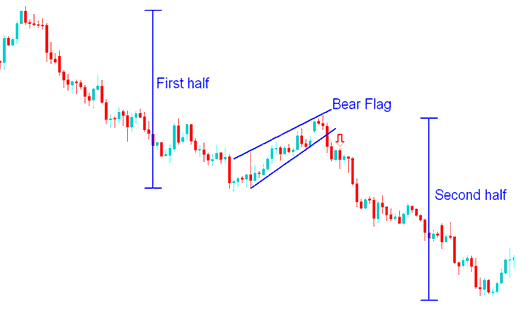
The bear pennant above was just a resting period for the cfd market prior to more selling. Continuation signal was confirmed as the lower line was broken to the down-side.


